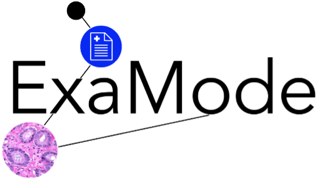About FAIRTERM 4 ALL
In this tutorial, we will present the main concepts about how to design and implement a reusable and interoperable multilingual terminological database by putting into practice the FAIR principles.
This tutorial will be both theoretical to reflect on the fundamental issues of “what” and “why” something is needed for a terminologist, and practical to understand “how” to achieve the goal of such a linguistic resource.
The activities of the tutorial will be divided into three parts:
- Methodology (60 mins): working with experts (both experts of the domain and computer scientists), understanding micro-systems of concepts, devise mediation strategies, develop linguistic and conceptual dimensions of terminology (Costa, 2013; Santos and Costa, 2015);
- Standardization (60 mins): choosing the appropriate representation of the terminological data, understanding the basic input of the ISO standards, XML and RDF data organization pros and cons, a Linked Data view of the term base (Cimiano et al., 2020);
- Implementation (60 mins): benefits and drawbacks of Web applications or standalone applications, compilation and collaboration among users, exporting and importing terminological data across Computer Assisted Translation Tools (Vezzani, F., & Di Nunzio, G. M. (2020a)).
FAIRterm is the first terminology tool designed in order to meet the FAIR principles (Findability, Accessibility, Interoperability, and Reusability) for research data and implemented according to the ISO TC/37 SC/3 standards currently in force for terminology management. In particular: ISO 16642:2017, ISO 12620:2019, and ISO 30042:2019.
The participants will have free access to the web application and compile their linguistic resource and export and import their data into their preferred format/software.
Motivation and Topics of interest
The paradigm Open Science reflects on the creation of scientific knowledge based on transparency, cooperation and sharing in order to increase the reproducibility of research results as well as the usability of such knowledge to generate public confidence.
The European Open Science Cloud (EOSC) Association is driving the implementation of a “Web of FAIR data” that allows researchers to find, exploit, and combine linked datasets, leading to discoveries and research paradigms. FAIR - findable, accessible, interoperable, and reusable - is the set of requirements to ensure that digital artefacts within EOSC can be discovered and reused. The availability of FAIR data by design will allow scientists and citizens to make the best use of new data, and will enable the development of software services, applications and tools that deliver the requisite information for scientists to optimize their research (Wilkinson et al., 2016).
After 20 years since the last tutorial on terminology at LREC, we will discuss the general guidelines to design a terminological database that will be a FAIR by design. We will present how to use the most recent ISO standards to implement an interoperable and reusable terminological resource.
We will present FAIRterm, a free tool for the compilation of multilingual terminological records (Vezzani and Di Nunzio, 2020a, 2020b).
FAIRterm is the first terminology tool designed in order to meet the FAIR principles (Findability, Accessibility, Interoperability, and Reusability) for research data and implemented according to the ISO TC/37 SC/3 standards currently in force for terminology management (Vezzani, 2021). The theoretical premises behind the design of the tool are based on the paradigm of the “FAIR terminology” whose goal is to provide a model for the optimal and efficient organization of terminological data.
Within the “Terminology without borders”project, the TermCoord supports the use of the FAIRterm tool for the compilation of multilingual terminological records by the partners collaborating in the project.
Main References:
- Cimiano, P., Chiarcos, C., McCrae, J. P., & Gracia, J. (2020). Linguistic Linked Data. Springer International Publishing.
- Costa, R. (2013). Terminology and Specialised Lexicography: two complementary domains. Lexicographica, 29(1), 29-42.
- Santos, C., & Costa, R. (2015). Domain specificity. Handbook of terminology, 1, 153.
- Wilkinson, M. D., Dumontier, M., Aalbersberg, I. J., Appleton, G., Axton, M., Baak, A., ... & Mons, B. (2016). The FAIR Guiding Principles for scientific data management and stewardship. Scientific data, 3(1), 1-9.
- Vezzani, F. (2021). La ressource FAIRterm: entre pratique pédagogique et professionnalisation en traduction spécialisée. Synergies Italie, (17), 51-143.
- Vezzani, F., & Di Nunzio, G. M. (2020a). Methodology for the standardization of terminological resources: Design of TriMED database to support multi-register medical communication. Terminology. International Journal of Theoretical and Applied Issues in Specialized Communication, 26(2), 265-297.
- Vezzani, F., & Di Nunzio, G. M. (2020b). On the Formal Standardization of Terminology Resources: The Case Study of TriMED. In Proceedings of The 12th Language Resources and Evaluation Conference (pp. 4903-4910).
Outline
Introduction to Terminology (1 hour)
- Terminology and Knowledge Representation
- Conceptual Dimension
- Linguistic Dimension
Towards a FAIR Terminology (1 hour)
- FAIR Principles for Open Science
- FAIR Terminology Paradigm
- Three ISO Standards for Terminology Management
The FAIRterm Web Application (1 hour)
- Users and Projects
- Creation and Compilation of Term Records
- Management and Data Curation
